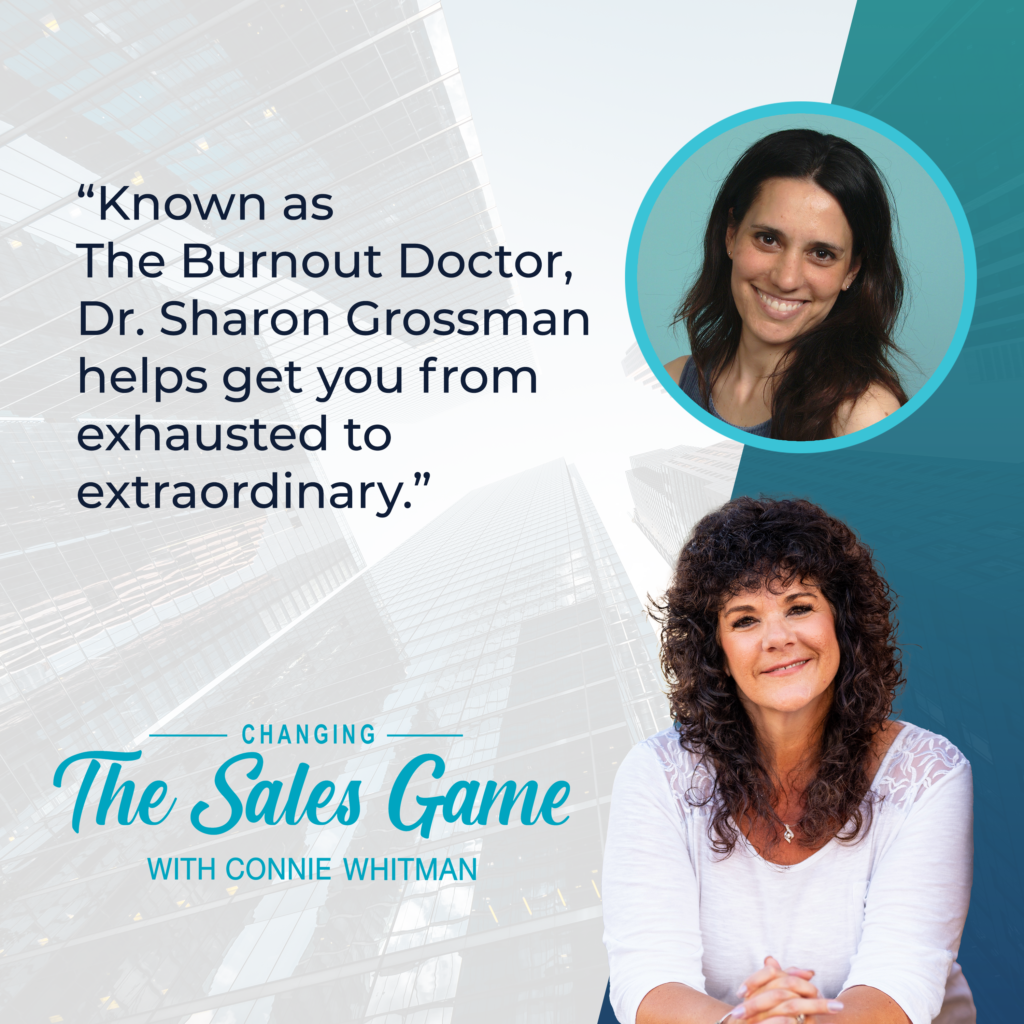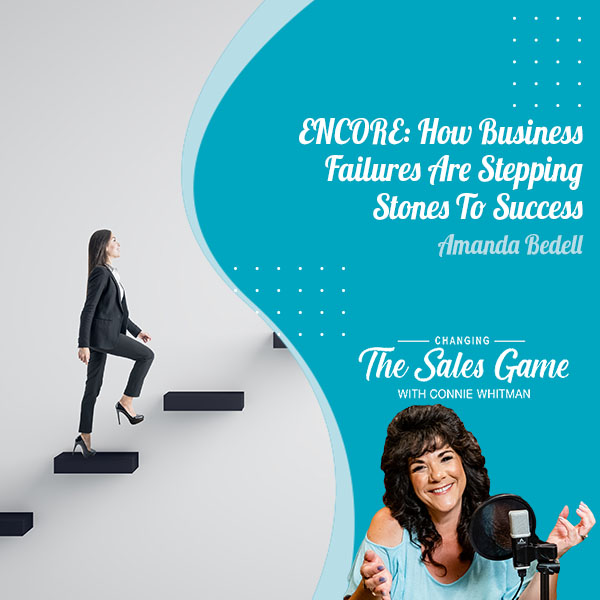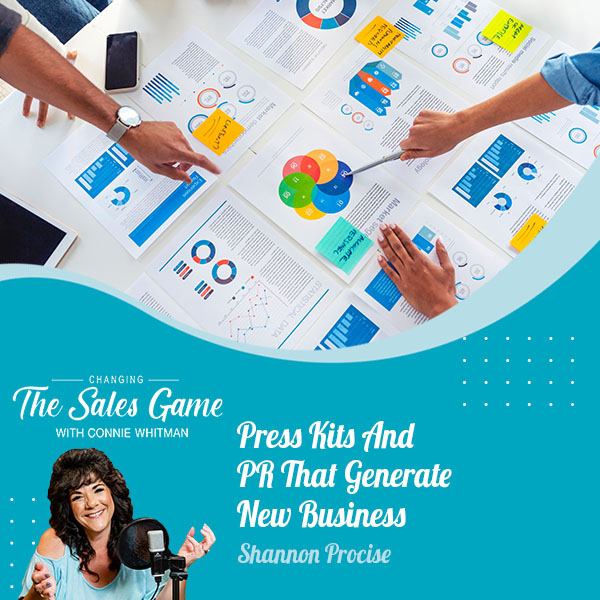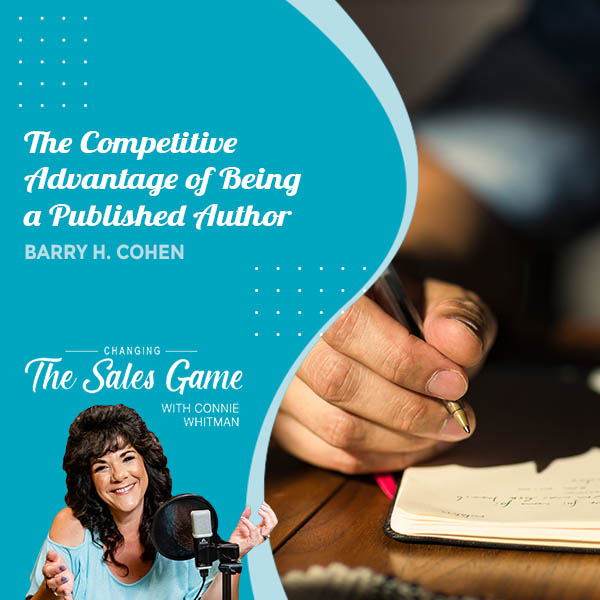Almost everything will work again if you unplug it for a few minutes…including you.Anne Lamott
Check Out These Highlights:
Burnout is real and can affect all areas of your life. How do we reach that point of exhaustion and burnout? More importantly, how can you avoid reaching burnout when it is on the rise?
While we often point to external circumstances like the demands or culture of our job, so much of what leads to burnout is the way we think about those circumstances and our beliefs about ourselves.
In the next half hour, you will find out how your mind contributes to your exhaustion and what you can do to turn it around.
How Your Beliefs Can Lead You to Burn Out With Dr. Sharon Grossman (EP. 85)
As always, thanks for joining us. I hope as you tune in to the show that you feel my passion that I really want to help you shift your paradigm of thinking of that word sales, that icky, sleazy, and manipulation, and just get you over there that we always have to be coming from love, care, and respect. To help you on that journey, I have a free gift for you. If you go to my website, I have a link that shows you your natural communication style and it spotlights how people perceive you in real life. What are those natural strengths and superpowers?
Flip side, you also get a second report, which spotlights your blind spot, which are hidden and actually helps us move the needle of whatever change or whatever we’re trying to do in our life. It shows us what those blind spots and challenges might be that we’re facing. Go to ChangingTheSalesGame.com/CommunicationStyleAssessment.
My motivational quote is by Anne Lamott. Anne says, “Almost everything will work again if you unplug it for a few minutes, including you.” Burnout is real and it can affect all areas of our life. How do we reach that point of exhaustion and burnout? I think, more importantly, how can we avoid it altogether? While we often point to external circumstances, the demands, the culture of our job, our kids, or soccer practice, whatever it might be, so much of what leads to burnout is the way we think about those circumstances and our beliefs about ourselves.
In this episode, you’re going to find out how our minds contribute to your exhaustion and what you can do to turn it around. We’re going to give you another little tool to dig in and see your own personal wiring. My guest is my good friend. She’s back for the second or third time, Dr. Sharon Grossman. Sharon is a Success Coach, speaker, and author of the Amazon bestseller, The 7E Solution To Burnout. She helps high achievers crack the code of their burnout so they could find tailored solutions for recovery.
If you’ve tried workshops and therapy and feel nothing sticking, working with Dr. Sharon will show you how you could totally transform your relationship with your work by working on yourself instead of trying to change your job or career. She shared her ground yet practical approach with numerous organizations, nonprofits, and universities. Please help me welcome the amazing Dr. Sharon to the show. Sharon, thanks for being on.
About Dr. Sharon Grossman:
Sharon is a success coach, speaker, and author of the Amazon bestseller, The 7E Solution to Burnout, who helps high achievers crack the code of their burnout so they can find tailored solutions for recovery.
If you’ve tried workshops and therapy and feel like nothing sticks, working with Dr. Sharon will show you how you can totally transform your relationship with your work by working on yourself instead of trying to change your job or career. She’s shared her grounded yet practical approach with numerous organizations, nonprofits, and universities.
How to Get in Touch with Dr. Sharon Grossman:
- Podcast: Decode Your Burnout
- Free Link to Crack My Code
Thanks so much for having me. I’m excited.
I’m a dork and I love having you on. I love talking about this because the tool we’re going to talk about, like my communication style assessment, is another layer where we peel back our own onion and start to get some insight. The other thing is that I know you’re the burnout expert and I feel like everybody is burning out lately.
It’s interesting like the way you were saying, how we often will point to our circumstances and say, “It’s COVID. It’s my boss. It’s my organization. It’s my industry. Those are the reasons why I’m burned out.” In fact, I had a client who, when she got on a call with me, said, “Why should I have to work on my mindset when it’s really the industry that’s the problem?”
It was interesting when we did a little exercise. Within about 30 seconds, she started to say, “If I went to work focusing on the things that I currently appreciate about my job, as opposed to all the things that I don’t like about my job, I would feel a lot lighter.” Look at that. Nothing’s actually changed except for what you focus on, so it is really amazing.
One of the things that we discovered by working together is that the reason she was burning out is because she’s such a perfectionist that it was taking her a lot longer to get her work done. She would take on more than what was required and would come early and stay late. That basically translated into not having enough time for herself. She’d get home late and she’d have to grab a sandwich instead of having a nice dinner. She didn’t have time for her friends or for doing anything fun. You wake up and do the same thing every day.
Groundhog Day.
Of course, people are going to be bitter.
One time, I was up with a corporate client. One of the young men said, “You have a typo in the manual.” It was a job aid I created. Now, the head of training, every time I make a change to a manual, she has to redo and sometimes she copies them in advance, especially if we have several classes scheduled. I said to him, “Thank you so much for sharing that.” He goes, “You’re not going to do anything with it, are you?”
I said, “Can I be honest? It’s one word in a 50-page manual. If I do that, Jackie will kill me. Thank you for pointing that out. If and when I do make a change to the manual that we have other things that we have to change, the content itself, a form, or whatever that was there specifically to the organization, I’ll make a note and I’ll change it.” He just laughed.
In DISC, which is what this organization uses for a behavioral model, I’m an ID. It’s like, “Yeah, it’s a typo. Do you know what the word is? We’re good to go.” It’s that idea that we get stuck of, “I have to redo the whole manual then.” Do you really have to redo the whole manual? If it was an impactful error, yeah, of course, I would’ve redone the manual, but one word in a job aid? It’s not even worth the effort or energy to go back and do something differently that’s going to affect so many things that we already have and the balls that we already have in the air. It’s picking and choosing to some extent.
The system that I use for personality is called B.A.N.K. That sounds like a Blueprint, that person who is very structured and likes to go by the rules. For them, it does actually matter. What happens is you work in an organization with people who have different personality codes. You don’t understand why they’re making such a big deal out of the little thing and they don’t understand why it’s so hard for you to just do the one little thing. It’s not that big a deal. Just do the thing. That’s where so much conflict and stress happens in the workplace because we don’t understand each other. We’re not speaking each other’s language.
Here’s the thing, too. I know you teach it this way as well. Whether it’s B.A.N.K. or DISC or my CSA, it doesn’t matter. These are wonderful tools and I believe that people resonate with different things or or they land better. That’s why I’m excited to talk about B.A.N.K. with you. I giggle because as soon as you teach these models or this tool, it’s a tangible tool for people from an application standpoint as they communicate and navigate humans because that’s who we deal with, all of a sudden, they’re like, “That’s why my husband is driving me crazy. That’s why my daughter does that with her homework.”
What Is Burnout
All of a sudden, you’ve just helped them meet the other person halfway without effort because it’s just an understanding. We all have filters and biases. All of a sudden, you define that filter of what’s really going on. You have all these a-ha moments. Before we get into the personality coding and all of that, define for everybody what burnout is. Maybe even more importantly, how can we know that we’re in the throes of burnout?
Burnout, just to keep it really simple, is chronic stress. We all know what stress feels like. Stress is when we feel like there’s too much to do in too little time or our jobs require us to do too much with too little resources, whatever that means for whatever your work situation is. We start to feel squeezed. We can all handle acute stress, but when we feel like it’s unrelenting, you mentioned Groundhog Day earlier. It feels like everything’s coming down on you, then you start to feel crushed.
Burnout is chronic stress. Stress is when we feel like there's too much to do in too little time. Share on XI like to use this quote. This is somebody who did an excellent job talking about burnout at a conference. He described his own experience. I like to use this because he uses great metaphors to explain it. His name is Arthur Doler, and he says, “Burnout for me is this feeling like I’m the only one who can accomplish something or the only thing standing between success and failure. It’s a feeling of just sheer unmitigated anxiety gnawing at my core. The feeling of pushing rocks uphill and having them roll back down on me. That’s burnout.”
What is the image of the male pushing the boulder up the hill?
Sisyphus.
Cracking The Burnout Code
It’s that same image. As you’re listening, you feel like you have that boulder, that weight of the world that you’re pushing uphill all the time. What a great visual to describe his burnout and what burnout is. That’s wonderful. Thank you for sharing that. Why is it important that we crack our burnout code?
There are a lot of people out there that talk about burnout recovery, and there are a lot of people who are burned out who maybe will go out and take a vacation, take some time away from work, come back, they feel better. You’re like, “Why do we have to take this extra step?” The reason I think it’s actually important is because it comes back to that idea of self-awareness. You have to understand what led you personally to burnout out because it’s different for everybody.

In the same way that I get stressed out over things that maybe don’t stress you out, and you get stressed out about things that I’m not stressed out about, we’re going to have different versions of triggers and stressors. Also, different coping mechanisms. If you don’t understand what led you to burnout, and then you just take a generic approach to recovery, what happens more times than not is you end up burning out a second time and a third time, and then you’re kind of like, “You know what? My career is the problem. Obviously, I’ve tried everything. I keep burning out. I have to find something else and reinvent myself.”
I’m here to say that, while that may be the case, most of the time, it’s just the fact that you’re using some generic approach for recovery because you don’t understand what brought you to burnout. If we can start to get into the weeds and figure out what is your burnout profile, what are the things that have led you specifically to burnout, then can find out who else had a very similar profile and what helped them. Maybe there’s a match there. Maybe what helped other people who have your version of burnout would be a better solution than just everybody going on vacation.
Everything doesn’t work for everyone. It’s the same thing. We talk business all the time and I say this all the time. I might not be the right person to help you with your sales journey to make more money and get better. Whatever it is that you’re looking at in that word sales, I might not be your cup of tea, and that’s okay. If you’re dealing with burnout, maybe Sharon isn’t your cup of tea, and that’s okay. If you listen and you hear the perspective and expand your perspective, that’s where the change can begin.
Factors That Comprise The Burnout Code
That’s where we could say, “I did take a vacation and I felt good for a week,” and then it was the same crap after that. Maybe the vacation isn’t the answer for you. That blanket, “Take a vacation. Take time off. Simplify your life,” whatever that means for you. I agree with that. I know you talk about three factors that comprise someone’s burnout code. Can you give us some insight with that?
A simple way to remember this is the acronym PEP. The first P stands for your Programming. Your programming is basically everything that you absorbed as a young person on this planet when you were that blank slate. You let that become your reality. What do I mean by that? I’m sure there are some people that can relate to this, but it could be that you’ve had some adverse experience in childhood. It could be the way that you were conditioned to think and behave.
It could be any sort of role modeling from your parent. If you were discriminated against and what you made that mean. All of your beliefs, the way that you cope with stress, the decisions that you’ve made in the past or that you continue to make because of this mindset. In any sort of intergenerational trauma, there are so many different things that contribute to how you show up and everything that is your schema for the world.
Some examples that I can share from people who I’ve interviewed on my podcast include, “Dad had a strong work ethic. I grew up seeing him work as hard as he did. That’s why I work as hard as I do. That’s what led me to burnout” or “I have to be strong, so I can’t show my emotions.” What happens when you’re feeling all this stress and you’re trying to keep it all down? You’re not getting social support. You’re trying to pretend like everything’s fine. It’s not fine. The more you do that, the more of a red flag it actually is because you’re going to burn out faster.
When you're feeling stressed, trying to keep it all down, not getting social support, and pretending like everything's fine when it’s not, you’re going to burn out faster. Share on XSomebody who says, “Self-care is selfish. I just focus on everybody else’s needs,” and they become a martyr. That, we already know, doesn’t work. Where does this come from? This all comes from our programming. The more you understand that, the more you can realize that there’s no truth in these things. These are just things that your brain has attached itself to. If it doesn’t work, we got to change it.
I want to comment on that because it’s real important. The first two examples, I was giggling. I don’t know if you saw me go, “Can I raise my hand here? I think that’s totally me.” My dad, his work ethic and my mom, too, to that extent. Even their families, siblings and parents. It was about hard work. My mom’s dad worked 3 or 4 jobs. She grew up during the Depression, so you make money the way you can. Even after things got better, he continued to work 3 or 4 jobs. What did he learn from his parents? This element of nose to the grindstone. Work hard. That’s what I was taught. That’s what I knew.
Through my journey, talking to people like you on the show and my own stuff that working through years of hiring people for my self-help, the bottom line is that was his journey. That doesn’t have to be my journey. I do believe that you can’t blame others, you do have to own it, you do have to work hard, and all those things, but you can’t work hard to the point where you don’t come up for air. The second example you gave, it was work hard and the other one was be strong.
It’s not showing your emotions.
I know for myself, my dad was always this Rock of Gibraltar and never ever showed his emotional being. Now that he’s older, he does, which I love to see him share and be vulnerable with my siblings and I. I’ll tell you, my motto, especially probably during my first 20 years in corporate, “Suck it up. Pick up your big girl pants. Keep moving on. Just do it.” That’s horrible to have that type of self-talk. Your feelings don’t matter. Just push it down, move on, and dig in. It’s horrible. That persona of strength and not being vulnerable, it’s dangerous.
I actually like to tell people, “If you treated your work the way that you treat yourself, you wouldn’t have a job,” because we don’t treat ourselves well at all. What you just said about, “Pull up your big girl pants.” We say that to ourselves all the time. If somebody else said that to us, would we not lose our minds? Would we not be like, “How toxic is my work environment? I got to get out of this job.” We say this to ourselves all day long.
If you treated your work the way that you treat yourself, you wouldn't have a job because we don't treat ourselves well at all. Share on XIt’s crazy. The human brain is an interesting thing. We talked about brain priming the last time, which I love too. Another great content. Go back to that episode, too. Sharon was brilliant as always. The brain environment, our ancestors, our DNA, all of this affects how we perceive and see the world. If you push it down and pick up your big girl pants, you’re going to be in burnout mode a lot. My next one is, I know you talk about the three biggest environmental influences on well-being that contribute to burnout. Let’s keep peeling back this onion because it’s fascinating.
The PEP model starts with your programming. E stands for your Environment. We want to talk about, what does that include? Environment can be your work culture. One of the guys that I interviewed for my podcast is named Jamie Getgood. He was the Director of HR for General Motors Australia. The way he described the work culture was, “We were mistreating people. We weren’t communicating well. There are lots of factors that were toxic in the environment. That led everybody to burn out.”
Another person said, “When a society is very individualistic, it’s so much harder for people to ask for help.” That’s another example of work culture. If our work culture is not embracing these concepts that we’re talking about, and it has the same mindset that we have as high achievers, then everybody’s going to end up burning out at the end. We’re seeing 50%-plus of the workforce burning out. Something has to change. I’m always a proponent of, “How can you help yourself because you cannot sit around and wait for them to make any changes?”
We're seeing over 50% of the workforce burn out. Something has to change. Share on XBureaucracies are notoriously slow and it benefits them on some level if you have short-term thinking to get you to grind. They’re not thinking long-term. They’re not thinking, “If they burn out, they’re going to leave. We’re going to have to train new people. It’s going to cost us.” All these things. Lost business. Customer service going down. They’re not thinking like that. They’re just thinking like, “How much can I squeeze out of this person? I’m paying them a salary.” I had this woman on my show who said that she was in medical residency, pregnant with her third child. The week before she delivered, she worked 120 hours. Can you imagine? I’m like, “I have never worked 120 hours, not pregnant with three kids. I can’t even imagine the week before delivery.”
She did it?
She did it. This is real. The reason she did it was because she was trying to take care of whoever was going to have to step in for her while she was gone. She didn’t want that person to be burdened with all of her work. We have people who really have their heart in the right place. They are beautiful people-pleasing people, but at the same time, they’re not taking care of themselves and it’s a real issue. That’s what I would say is the first environmental factor.
The second one is other people’s personalities. You might know everything about yourself. Let’s assume that you’ve taken all the personality inventories. You know what your strengths are. You know what triggers you. You know all the things about yourself. How you engage in different circumstances and what’s the best way to show up, but then you end up with things that are totally outside of your control. You have a boss who’s a micromanager, or people on your team have poor communication, or you’re waiting on a piece of the project and the person’s totally procrastinating.
It doesn’t even have to be that you work in a company. You could be an entrepreneur running your own business and you’re waiting on contractors. You’re waiting on somebody that you’ve delegated something out to and they have poor time management skills. They’re not communicating to you that they’re having an issue. All of a sudden, now you’re sitting and waiting for this thing and it’s holding up your business and you’re not selling as much or you’re not producing as much or whatever it is. That creates a lot of stress freeze. What do you do when you’re dealing with other people’s personalities?
Finally, we have social stressors. Even if everything is amazing at work, we still have life going on. We know that if you are doing like everybody’s doing during COVID, you’re moving, getting a divorce, getting pregnant, having children, or being a new parent. Somehow, you have an ill family member or there’s some sort of death in the family. All of these things are real and it’s part of life. If you feel the stress of all of that, even if everything’s great at work, it’s going to affect you. Most of the time, not everything’s perfect at work. Now we’ve got all of the things coming together and you can start to see how everybody’s burning out for different reasons. We have to know how to manage that.
It’s like the perfect storm.
Three Burnout Profiles
The third P, of course, is your Personality. It’s really important to understand how all of these things come together. Your programming actually dictates the kind of personality that you’re going to have. As we said, there’s a lot of conditioning that happens. There’s a lot of role modeling that’s shaped how you see the world. You’ve had early life experiences that have solidified your view of yourself and other people. This actually shows up in your personality. I like to think of burnout with regard to personality as three clusters and three burnout profiles just to simplify matters. Of course, if you do one of these personality assessments, you get more nitty-gritty. You get the reports and all the details.
Just to conceptualize it right now, I like to think about it like this. There’s the thinker, the feeler, and the doer. The thinkers are the people who go through a mental obstacle course of perfectionism, self-criticism, indecisiveness, imposter syndrome, and they catastrophize. All of these things create unnecessary anxiety, all of which deplete them of energy and contribute to their burnout. You can start to get a picture of what this looks like and maybe even identify as a thinker.

It’s the person who can’t fully relax. They’re full of negative self-talk. They have a lot of internal stress and pressure. They restrict their life because they have so much fear. They are constantly looking for reassurance. I can go on and on, but you’re getting the picture. These people tend to have more anxiety and end up feeling lonely because they’re trying to do everything by themselves and trying to do it perfectly.
It’s exhausting.
It’s exhausting just listening to it, but this is what happens. I mentioned before my client who was staying late at work. She was an example of a thinker and she had a lot of resentment. She wanted to enjoy her work and not feel constantly tired. What it turned out is the reason why it was taking her so much longer and the reason why she was spending so much extra time at work was not because they had unrealistic expectations for her as she initially thought. It’s because she was a perfectionist. She wanted so much to know everything and help with everything. If somebody asked her a question and she didn’t know, she would have to do the research and follow up with them.
It was creating all this extra work. I said to her, “Why don’t you just schedule a follow-up appointment? At least then, you’re accounting for that time. You’re not spending double the amount of time for one appointment and then running out of time for your life.” She started to do that. A lot of times, it’s about focusing your mind. A lot of my clients, when they first come to me, they have this concept of like, “I can’t do it any faster” or “It’s not possible,” which is why I’m in this predicament. I basically challenged her to do what I called the three-shift challenge because she’s a veterinarian. I said, “For the next three shifts,” which was how many shifts she had between our sessions, “I want you to leave on time.”
Did she freak out?
This is what’s so great about coaching. We need that accountability. We need that container. We need the challenge. We need the focus. She did it, and then she emailed me. She was like, “That blew my mind. It had never happened prior.” When I put her to the challenge, what happened was she showed up to work laser-focused. She was like, “No, can’t do that. No, that can wait. I have to do this.” She got it done and she left on time. If we do this on the regular, we have a life, we can relax, we don’t burn out. This is so important. I didn’t do that exercise with any one of my other clients because their challenges are all so different. That’s why I’m saying it’s important to know what your burnout code is so we can have those custom-tailored solutions.
We’re not cookie-cutter people. Our situations are not cookie-cutter. You need customized solutions that are going to work for you, not that it worked for someone else. I love that. There were three profile personalities that are typical or really be mindful of, “Is burnout in your future if you’re not already in the throes?” The one is the thinker, that was the example with the veterinarian leaving on time was your solution. Can you share the other two? I’m curious.
The feeler is somebody who burns out because they end up focusing on pleasing other people, as we’ve mentioned earlier. They take on more than they can chew. They become so overwhelmed in the process that they collapse. They’re filled with guilt about saying no, but then they’re resentful when they say yes, making them feel trapped and emotionally exhausted no matter what they do.

It’s like a double-edged sword.
It’s a total double-edged sword. It comes from this deeper place where they believe that they’re not important, so they’re not getting their needs met. They’re emotionally depriving themselves. They feel empty, invisible, and disconnected from others. They struggle because there’s guilt on one side and then there’s resentment on the other side. It does leave them like in a lose-lose situation.
There’s an element of not feeling worthy in there.
It’s a problem for a lot of people. As I said, these are the people that have the biggest heart. They’re trying to take care of all the people, but underneath that is a real desire for external approval. That is a wrong solution because no matter how much they do, even if they get that approval, they’re always up to the next task and have to do it all over again. They never actually arrive. It never feels like, “I’ve done enough. This is good. I’m good.” It’s always like, “I got to do more. This person needs another thing from me. A different person needs something.” It’s exhausting.
Anybody tuning in, I’m sending love to you if you feel that way. What’s the third one?
The third one is your doers. Those are people who burn out because they try to do too much. This is a real example. I had somebody on my podcast who said they started a business while they were pregnant. They were giving 70-plus hours a week while trying to raise their kids. They had one kid with special needs. On top of having a dog, they got a puppy.

They’re trying to do all the things, but right now. It’s completely unrealistic and it’s that constant drive. These are the people who will end up saying, “I don’t have time for meditation. I don’t have time for self-care. Even if I thought that I had total buy-in, that would be amazing. Who’s got time for that stuff? I’m so busy. I got so many balls up in the air. I’ve got work to do. I’ve got all these things going on. I got my business, I got my kids, and I got all this stuff. I have to be perfect in everything I do. I got to do a great job.” It’s unrelenting.
Whereas the thinker, it’s about the quality of what you do. The doer is more about the quantity, “I got to keep doing. I got to keep going. I got to keep taking on more stuff.” One of the questions people often ask me is, “Can I be more than one of these?” Sometimes people listen to these three descriptions and they’re like, “I’m all three.” I’m like, “Yes, that’s absolutely possible and that puts you at even greater risk for burnout.”
If you have all three, it’s the trifecta. If you haven’t burnt out, it’s probably going to happen at some point, I would imagine.
Focus On YOU
These are risk factors. I think it’s important for people to know what working too much looks like. They have to start paying attention to themselves rather than everything external. That’s where a lot of the work happens. I think you read in my bio that a lot of the work that I do is working on your relationship with yourself because people often burn out and they’re like, “I got to change something external, like my job.” Let’s just focus on you.
What you said, “I got to find another job.” They find another job and they’re like, “It’s the same thing I was dealing with, but it’s even worse,” because it’s the pattern. We’re repeating the same pattern. Instead of doing the pattern interruptive changing us, then you’re going to look for a totally different job or find out the job you’re in is actually perfect for you. You just saw it from the wrong perspective. We have the answers, but sometimes they’re really hard to mine and find.Of course, Sharon’s my very good friend and I love her. She’s extremely generous. She has a free gift for everybody. It’s to crack your personal code and it’s called CrackMyCode.Com/BurnoutDoc. Did I get that right?
Yeah, I am the burnout doc.
Yes, you are and you’re very good at it, too. The other personal thing I want to say, Sharon really is a customizable approach because of her background obviously in this whole field and because of the tools that are available and the tools that she’s developed and shares, she does customize. You’re not a cookie cutter when you come to Sharon.
I totally support you, Sharon, because I think what you’re doing out there is so needed, not just for business owners, but for corporate people as well. I don’t care where you are in your corporate career. My kids are starting out and there are stresses with that of not being good enough. “Am I showing up? Am I in the right job?” All of the things that young people go through. I highly recommend it.
Also, Sharon and I did record another show on priming your brain like you would prime a wall before you paint. It’s all about understanding self and understanding, like you did with the veterinarian that you said, “This is the challenge in the next three days. Leave on time.” She did and the practice didn’t implode on her. She actually got to go for a walk or eat, make dinner, whatever it was that she was able to do in her spare time.
Thank you so much for coming on and sharing your wonderful perspective, your very heartfelt solutions, and that you customize, “Who is the person in front of me?” You really customize it. I do appreciate that because with sales with me, my clients, “Yeah, I have a program. I have this. I use the same tools.” However, every client is a little bit different because they’re all coming from a different perspective on sales, their career, or whatever it might be. I love that you’re this customizable kind of doctor solution out there. I appreciate you for doing that.
Thank you so much. I appreciate you having me on the show to talk about this because I know there are so many entrepreneurs that tune in to this show. Burnout and entrepreneurism go hand in hand. I know it’s a needed message for a lot of people.
My corporate clients, too. I have a lot of corporate career people. Burnout in the corporate world has been exponential since COVID. The Great Resignation, that’s another whole conversation. Burnout is real and I think it’s happening more. Maybe because we’re looking at it, we understand it’s there now, so we actually can acknowledge it. I think that we put so many demands on ourselves personally that if you haven’t burned out, you’re probably going to burn out. I know that’s for myself too. That’s all of us. We all could go down that rabbit hole.
I know that there’s a lot of shame for people about that. I want to say that if you burn out, it has absolutely zero to do with how smart you are. It’s just about the things that we talked about. It’s about the way that you’ve been conditioned to think. It’s about the culture that you work in. It’s about your personality and all the things that you’re trying from a loving place to try to do in order to feel good. You just have the wrong program going into the workplace. Understanding these factors is going to help you to show up differently.
Burnout has absolutely nothing to do with how smart you are. Share on XIt’ll move the needle wherever people are. I love it. Sharon, thank you again. Always a great conversation. I always find useful and valuable information from you. I love that free gift that everybody could start peeling back their personal onion, so to speak, and discern, “Am I all three? Am I heavier on one?” There are then some solutions that you can do. Once you understand something, you’re more open to making the necessary changes to change that situation. Thank you so much. I love our conversations.
Likewise.
I hope you will join me as we question, build, and discover together that no matter where you are in your career, no matter where you are in this stage of burnout or conversation now, I do hope that my guests and I together, that we share stories, ideas, our own personal stories and authenticity that we’re sharing with you. Take this information that Sharon shared, use the free gift to discern what your code is because now it puts you in a position of power.
Information’s great, but doing something with that information and implementing it, even if it’s a little easy thing that you change in your life, that creates the magic on the back end and hopefully keeps you from the burnout. Please reach out to Sharon. Listen to the podcast, Decode Your Burnout. Sharon has a show. It’s weekly. Please check that out. The free link, CrackMyCode.Com/BurnoutDoc, and I hope that helps you on your journey of change and changing your sales game.
Thanks for reading. I hope our conversation helped you understand or maybe put a magnifying glass or a light on things that are happening in your life. Hopefully, we’ve empowered you and given you some tools and strategies to implement immediately. Use the code and see how it can change your life. Thank you so much for joining us and I will see you all next episode. I look forward to it. Thanks for being on this journey of change and life with me. Have a good one.
Important Links
- ChangingTheSalesGame.com/CommunicationStyleAssessment
- Dr. Sharon Grossman
- The 7E Solution To Burnout
- Episode – Past Episode with Dr. Sharon Grossman
- CrackMyCode.Com/BurnoutDoc
- Decode Your Burnout
Stalk me online!
- Connie’s Website
- Connie’s LinkTr.ee
- Connie’s #1 International Bestseller Book – ESP (Easy Sales Process): 7-Step to Sales Success
- Download the FREE Communication Style Assessment
- Join our All-Star Community
Subscribe and listen to the Changing the Sales Game Podcast on your favorite podcast streaming service or YouTube. New episodes are posted every week on Web Talk Radio. Listen to Connie dive into new sales and business topics or problems you may have in your business.

 Sharon is a success coach, speaker, and author of the Amazon bestseller,
Sharon is a success coach, speaker, and author of the Amazon bestseller, 


